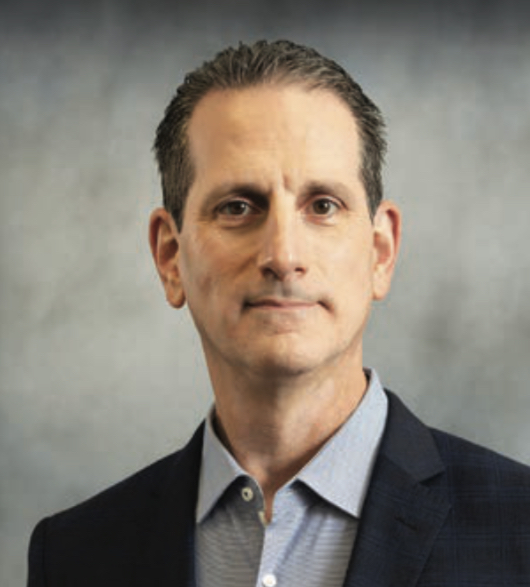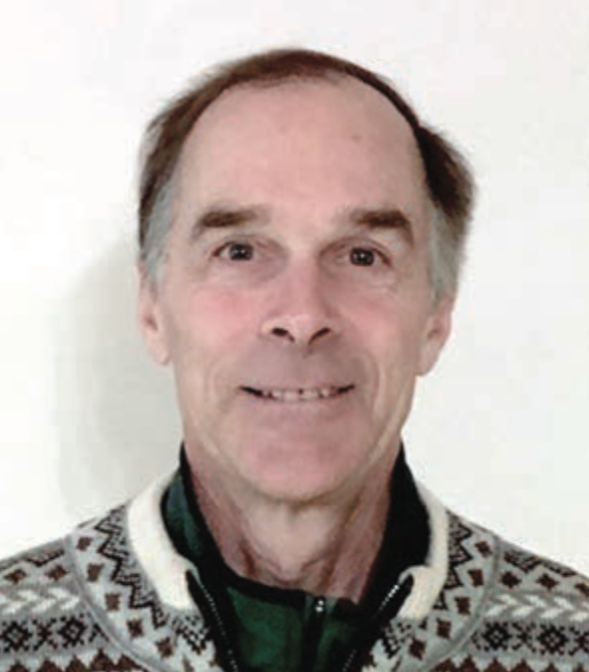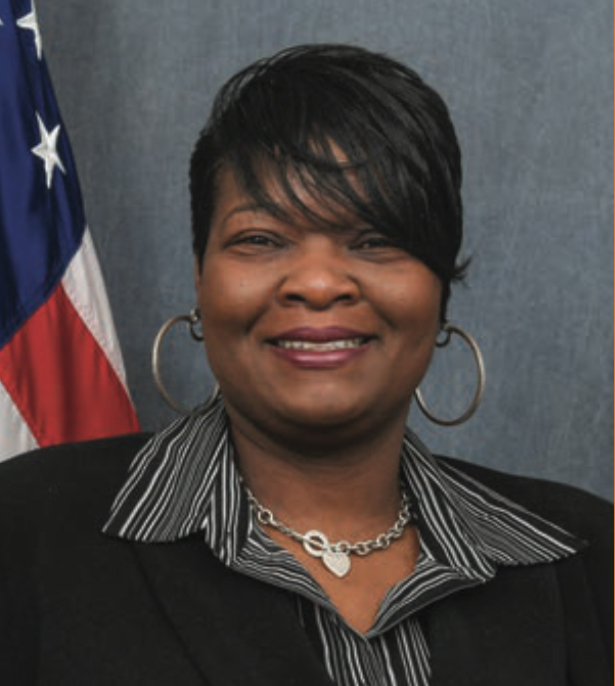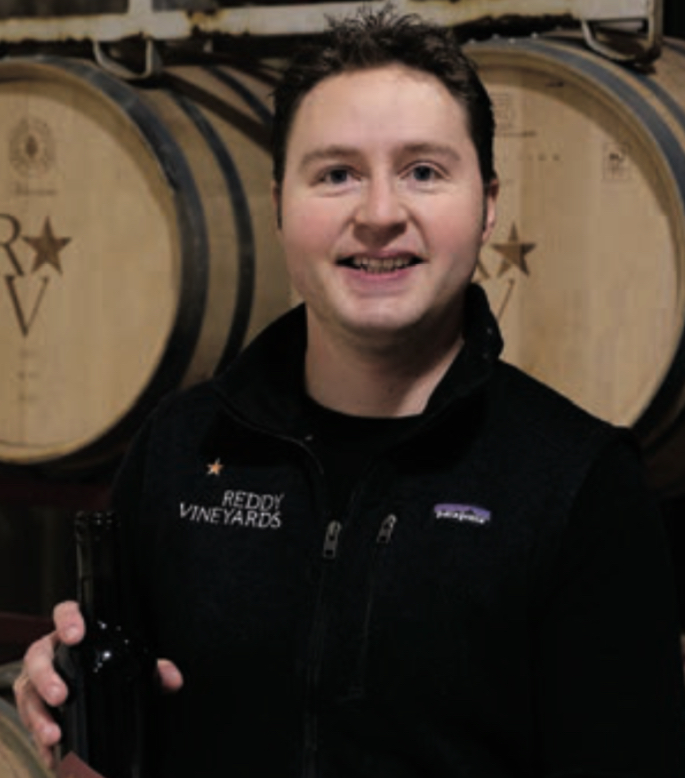ALUMS REFLECT ON THEIR JOURNEY FROM LAW SCHOOL TO THE C-SUITE
The College of Law has produced extraordinary leaders throughout its history. Today, our alumni include a president of the United States, congressional representatives, a state attorney general, college presidents, numerous judges, and other public servants, as well as business and nonprofit executives, entrepreneurs, managing partners, and many others in positions of influence.
In this second edition of The View from the Corner Office, we celebrate not only the journeys four alums have taken from the classroom to the executive suite but also their exemplary public service, on local, national, and international stages.
Along the way, we learn that for an Orange lawyer, almost any career benefits from a Syracuse law diploma. Look for more C-suite stories in future issues of the Stories Book!
John Hartmann L’88
COO, Bed Bath & Beyond; President, buybuy Baby

As career changes go, John Hartmann’s move from a special agent for the Federal Bureau of Investigation to Executive Vice President and Chief Operating Officer of Bed Bath & Beyond and President of buybuy BABY may seem unusual, but in this interview he explains the organic logic of his path and the skills he easily transferred from public service to corporate leadership.
Hartmann’s path from the FBI to BBB began with a senior role at Cardinal Health, a health care services and logistics firm, where he leveraged his skills as an operative and his knowledge of the pharmaceutical industry he’d gained at the Bureau. His time at Cardinal Health led him to the logistics of the home improvement industry, first serving as Chief Executive Officer of Mitre10 then joining The Home Depot and HD Supply, where he had roles in technology, strategy, and mergers and acquisitions.
Tapped to be President and Chief Executive Officer of True Value Company, he led the company—one of the world’s largest hardware wholesalers—through its transition from a dealer-owned co-operative to a network of independent retailers. Under his leadership, True Value implemented a successful “hyperlocal” marketing model and doubled the size of its sales force.
It is no surprise, therefore, that Hartmann’s journey eventually led him to his current position at one of the largest houseware goods specialty stores in the nation.
Did you imagine in law school that you’d eventually land in a corporate leadership role? I knew that my Syracuse education would prepare me for an exciting career, but I didn’t know I’d end up in a senior leadership role. As I progressed through law school, I was preparing for parallel career options. On one track I was preparing to be a practicing attorney in a law firm or company, but I was also interested in federal law enforcement and intelligence. After I took the bar exam, I became an FBI agent.
I’ve always had a passion for leadership. I was a member of the Army Reserve and President of the Law Student Senate while at Syracuse. During my tenure in the FBI, other leadership opportunities presented themselves. In my final year, I was a supervisory special agent, working with teams across the country and around the globe. I also investigated how foreign governments steal American technology, so economic espionage became a focus, and I learned a lot, about a lot of industries, such as in one particular investigation about pharmaceuticals.
That experience helped my transition to Cardinal Health, where I was exposed to all aspects of business, which led me to The Home Depot in 2002.
How did law school prepare you for your current role?
Everything that is gained in a legal education can be applied to business. That includes critical thinking, listening to different perspectives, learning how to negotiate, and analytical thinking, which helps get at the root causes of business challenges and their solutions.
“Part of the fundamental intersection between my law school training and my experience at the FBI is the critical and analytical thinking, as well as emotional intelligence, that my day-to-day work at BBB requires.”
What elements of your legal training—and your work at the FBI—do you apply in your position at Bed, Bath & Beyond?
Part of the fundamental intersection between my law school training and my experience at the FBI is the critical and analytical thinking, as well as emotional intelligence, that my day-to-day work at BBB requires.
At the FBI, you learn interpersonal and hone investigatory and problem solving skills. The vast majority of an agent’s time is spent interviewing people, searching for truth and data points, and asking pertinent questions. You also gain social experiences by talking to thousands of people from all walks of life, all demographics. In turn, those critical formative experiences help develop emotional intelligence, which is very important in whatever direction you take your career.
In a rapidly changing world, what innovation has most affected your industry?
There’s nothing more dramatic in retail than the proliferation of data and the ability to use that data to satisfy a customer’s desire for prompt and effective solutions. Consumer expectations have changed dramatically. Now transactions take place in stores and online at about the same rate, and that dynamic continues to evolve.
How has your business overcome challenges posed by the COVID-19 pandemic?
Bed Bath & Beyond pivoted dramatically to continue to serve customers even while the majority of our stores were closed. Our online fulfillment model was already underway, but we accelerated our digital transformation to ship products and to offer curbside pickup and “buy online/pickup in store,” or BOPIS, once stores reopened.
There is still absolutely a place for the store experience, however. Our customers desire it, and they help us inform that experience. We continue to meet the customers where they are and curate an experience that is inspirational, whether online, curbside, or in store. In the end, COVID-19 accelerated the direction retail was already heading.
What memory from your law school days is dearest to you?
Thinking of the formal side of law school, there was my experience on the Law School Senate and the superb relationships I developed with professors, especially Professor William C. Banks. I admire Professor Banks not only for the work he did teaching us Constitutional Law but also for his work in national security law and for the United States in general. He’s a tremendous asset to the law school and the country.
Informally, there was a group of us that would go out on Thursday nights together. We weren’t of extravagant means back then, but we would head to a local establishment and talk about our experiences, decompress, and build the kind of Orange experience that Syracuse promises—and delivers.
Art Lussi L’88
President, Crowne Plaza Lake Placid

Art Lussi is President of the Crowne Plaza Lake Placid, a resort in the Adirondack village that hosted the 1932 and 1980 winter Olympics. Restored and expanded, the resort now spans more than 1,000 acres of the Adirondacks and includes 45 holes of championship-level golf.
A Lake Placid native, Lussi excelled in tennis and skiing at Dartmouth College, and during law school he skied in the World University Games in Czechoslovakia. Admitted to the bar in New York State and Washington, DC, Lussi worked as a ski coach in Vail, CO, before returning to Lake Placid to help his family operate the Holiday Inn, now the Crowne Plaza.
A member of the Lake Placid Vacation Corporation since 1991, Lussi was involved in the village of Lake Placid and town of North Elba Community Development Commission, which produced a Comprehensive Plan in 1997, mapping the economic future of the area. He is also a Commissioner for the Adirondack Park Agency and a Board Member of the Olympic Regional Development Authority and New York Ski Education Foundation, having served as the foundation’s Chairman for 10 years.
Did you imagine in law school that you’d eventually land in a corporate leadership role? I thought I would be a sports agent, but I soon learned that you have to be an extremely aggressive negotiator and marketer to be successful, so I decided to coach ski racing after law school. After three years in Vail, teaching, working in a ski shop, and meeting my wife on the chairlift, I decided to join my family in the hospitality business.
How did law school prepare you for your current role?
The summer legal educational opportunity program helped me realize that I could become a lawyer, and it was professors Samuel Donnelly and Emil Rossi L’72 who gave me the confidence to lead a business and stand up for environmental protection. Professor Robert Anderson was the zoning guru who prepared me for years as an Adirondack Park Agency Commissioner. Now I lead our family through local zoning issues in resort development.
What elements of your legal training do you apply in your position at Crowne Plaza? Thinking like a lawyer really works! I’m an active listener—to employees, customers, and my family—and I document when the parking lot is plowed and the sidewalk shoveled! I also have defended employees in court when our insurance companies have recommended we retain outside counsel, and those wins have been especially sweet.
“I also have defended employees in court when our insurance companies have recommended we retain outside counsel, and those wins have been especially sweet.”
In a rapidly changing world, what innovation has most affected your industry?
People now make reservations at the last minute in resort areas based on weather reports and real time adjustments, and we are fixated with online reservation services, so keeping up reservation availability and rate structures remains challenging.
How has your business overcome challenges posed by the COVID-19 pandemic?
We are fortunate to be in a remote area where visitors can play outside on our mountains and in our parks, on our golf courses, and on our ski slopes—and still remain socially distanced. We “super clean” our hotel rooms, and we are lucky to be able to provide fresh air directly to our guest rooms through sliding glass doors.
What memory from your law school days is dearest to you?
In January 1987 I was selected to represent the College in Alpine skiing in the World University Games in Czechoslovakia, but I needed Acting Dean Stephen Wechsler’s approval. He said, “Young man, you do not take three weeks off to go ski racing in Europe and stay in law school.” However, Professor Peter Bell supported me, and the Dean relented—but he gave me my only D in law school later that spring, in contracts.
There was no internet back then, and I remember on my return, in a cab in DC, asking the driver how the Orange was doing in the Big East Tournament. The driver said, “Man, Where you been? Them Orangemen’s in the Sweet Sixteen of the Big Show.” SU kept on winning, and I ended up flying to New Orleans with fellow classmate— and now judge—Mike St. Leger L’88 for the Final Four!
Erica White-Dunston L’98
Director and Chief Diversity Officer for the Office of Civil Rights for the Office of the Secretary, US Department of Interior (DOI)

An expert in civil rights and employment law, Erica White-Dunston is Director and Chief Diversity Officer for the Office of Civil Rights for the Office of the Secretary, US Department of Interior (DOI). As Director, White-Dunston is responsible for developing and implementing workplace strategies that aid DOI in promoting equity, diversity, and inclusion. She also provides oversight to DOI bureaus, identifying and eliminating discriminatory practices via applicable Title VI and Title VII laws.
From 2001 to 2010, White-Dunston worked at the US Equal Employment Opportunity Commission (EEOC), first in the Office of General Counsel as a trial attorney in systemic litigations, with collateral duty assignments with the Office of Federal Operations and the Office of Equal Opportunity (OEO). In 2006, White- Dunston was reassigned to OEO, where she performed federal sector review for complaint processing. In 2008, she chaired the agency’s Disability Task Force, which resulted in the restructuring of the agency’s Disability Program.
Recognizing her superior knowledge in human rights and Equal Employment Opportunity laws and training, in 2014 White-Dunston became one of only 11 Internal Revenue Service employees named a Department of Treasury Certified Strategic Partner. In 2015, she became a Presidential Management Council Interagency Fellow, a program to nurture excellence through cross- agency exposure, and she served a six-month detail to the Chief Human Capital Officers’ Council at the Office of Personnel Management. In May 2016, White-Dunston returned to EEOC as the new OEO Director.
As a law student, White-Dunston received the Seely Johnson Award for Outstanding Leadership in an African American student,
the Ralph Kharas Award for Outstanding Leadership in Moot Court, and the Order of the Barristers.
Did you imagine in law school that you’d eventually land in a government leadership role?
No! I knew I would be focused on serving underserved communities, but not in this capacity.
How did law school prepare you for your current role?
My class was comprised of a spectrum of races, national origins, and religions, and there was always something to learn from everyone, so I developed skills that focused on collaborative partnerships and the interpersonal and negotiation skills necessary to obtain buy-in from differing points of view.
What elements of your legal training do you apply in your position at the US Department of the Interior?
I use every bit of my legal training when assessing claims of discrimination and delivering findings. I approach questions through the IRAC (issue, rule, analysis, and conclusion) model, which I learned in law school and which I have taught my staff.
In a rapidly changing world, what innovation has most affected your industry?
The ability to electronically file and respond to complaints of discrimination increases opportunities and access to address not only Title VI and VII complaints, but all equity, diversity, and inclusion-related concerns in the workplace.
How has your department overcome challenges posed by the COVID-19 pandemic?
Because my department was already heavily focused on complying with tech requirements as mandated by the EEOC, we were not as affected by the pandemic challenges. We were immediately able to meet our customer needs while working from the safety of our homes with little to no break in customer service and organizational support.
What memory from your law school days is dearest to you?
The friendships that I still have cannot be over-emphasized, but my dearest memory is of the Hon. James Graves L’80. During one of the Coming Back to Syracuse events, I told him of the challenge I was having with administrative law. Despite his busy schedule, he tutored me by phone. His willingness to help has never been forgotten because it made such a difference for me. I never forgot how a small act of kindness can have a huge ripple effect. Because of that kindness, I strive to provide that type of support daily.
“A Really Exciting Time!”
The Role of a Government Diversity Officer Under a New Administration
Erica White-Dunston L’98 became Director and Chief Diversity Officer in the Department of the Interior’s Office of Civil Rights in September 2019. DOI employs 70,000 people across 11 bureaus and seven offices. To understand her critical role within her department and the government— especially under the transition to the President Joseph R. Biden Jr. L’68 administration—we asked White-Dunston to describe her mandate and how it is evolving …
My mandate is to ensure that every employee has an employee life cycle that provides a work environment that is free from discriminatory animus and hostility.
I ensure that Title VII, and all of the discriminatory bases covered by it, are not evidenced in the workplace. To the extent they are, my role is to ensure that the department eradicates and corrects such behavior. We do this is a number of ways, ranging from proactive prevention with training and consultative services for employees and management to findings of discrimination that may result in compensatory damages and/or some form of discipline for bad actors.
With the recent change in presidential administration, there is a significant change in the Equity, Diversity, and Inclusion (EDI) community— as it is known in the federal sector—because of the issuance of executive orders 13985 and 13988 by President Biden.
Those EOs specifically reinstate diversity and inclusion training that had been held in abeyance since the former administration issued its Combating Race and Sex Stereotyping order in September 2020. The new EOs mandate that every federal agency review its policies, practices, and contracts to determine whether they are being conducted with an EDI consideration.
The Biden EOs also require federal agencies to review whether EDI programs are sufficiently funded to combat the disparity in the employee life cycles of underrepresented groups in federal government.
This review is unprecedented in that there has never been a requirement for this level of consideration of EDI on governmental services. Needless to say, I’m incredibly busy because the work of my program is now a department priority. It is a really exciting time!
Eric Sigmund L’12
Chief Operating Officer, Reddy Vineyards

Eric Sigmund has been Chief Operating Officer at Reddy Vineyards since 2019. “My path to wine came somewhat unexpectedly,” he says. While working in international law in Washington, DC, he took a weekend job at Total Wine & More stocking shelves and selling wine to help pay off student loans.
“Then I made a dramatic shift and took a full- time job at Total,” Sigmund explains, becoming first a sales associate, then a supervisor, then wine manager at the flagship store in Maryland, before landing the role of assistant French Fine Wine Buyer.
An introduction from Sumeet Batra L’12— now a senior business analyst at Amazon who grew up with Akhil Reddy—connected Sigmund with the vintner as he planned to launch the estate-grown Reddy Vineyard wines and build a new state-of-the-art winery. With his extensive on-the-job wine experience and mind for business and law, Sigmund was a good fit.
In February 2019, Sigmund moved his family to Texas to work full-time with the Reddys. Today, the Brownfield, TX-based vineyard has planted more than 300 acres on the fertile Texas High Plains. “I believe in 10 to 15 years, Texas wines will be right up there with California, Oregon, and Washington,” says Sigmund.
Did you imagine in law school that you’d eventually land in a corporate leadership role?
My initial career plan looked much different! After graduating, I worked as a legal adviser for the American Red Cross. It was a wonderful and challenging opportunity, but institutional challenges made it difficult to continue our work. At the same time, I had begun to be interested in wine working at Total Wine & More. This interest developed into a passion. I quickly earned multiple promotions until I became Assistant Wine Buyer at the company’s national headquarters, where I was responsible for procurement, logistics, and compliance for the company’s French wine portfolio.
How did law school prepare you for your current role?
Due to my international law focus, I spent a lot of time with Professor David Crane L’80. He knew how to motivate through honest and direct feedback that would build your confidence,
he showed compassion, and he always found a way to elevate my game. Professor Sanjay Chhablani, revered as a no-nonsense teacher, taught me how to truly prepare for a task and to think critically.
“In my opinion, experiential learning is the single most powerful tool educators can use to prepare their students for the real world.”
What elements of your legal training do you apply in your position at Reddy Vineyards? The law and the alcoholic beverage industry are intertwined in ways that many people are unaware. Legal compliance touches many facets of my job—from production parameters; to how wines are labeled; to taxes, logistics, interstate sales, reporting, and more. Whether it’s navigating the Alcohol and Tobacco Tax and Trade Bureau’s regulations or strengthening direct-to-consumer sales, I use the research, analytical, and writing skills I developed in law school.
In a rapidly changing world, what innovation has most affected your career?
Looking back on my law education, I’d say that experiential learning had the most dramatic impact on my career. Role-plays and simulations prepare students to be far more competent practitioners. In my opinion, experiential learning is the single most powerful tool educators can use to prepare their students for the real world.
How has your business overcome challenges posed by the COVID-19 pandemic? COVID-19 presented significant challenges to our business, but it also presented unique opportunities that we were able to capitalize on in order to grow our business.
COVID forced brands to be flexible and evolve industry marketing tactics by years in a matter of months. Reddy Vineyards was very quick to pivot our sales strategy to optimize our digital presence, and we adopted virtual strategies to bring our products directly into peoples’ homes.
We also doubled down on our wholesale strategy, something that very few producers in Texas have chosen to pursue, even accelerating our production timelines to launch a new line of wines to provide greater access to the retail marketplace.
As a result, we found success through the off- premise (retail) alcohol boom, and our products are now distributed statewide in partnership with the nation’s largest distributor. We will continue to diversify our business model this year by opening our first tasting room, looking to capture the rise in wine tourism as the state reopens.
Next year is the 25th anniversary of Reddy Vineyards, so we are already preparing programming to celebrate that occasion. I am incredibly proud of our team’s hard work, and I am excited to see the company continue to grow.
What memory from your law school days is dearest to you?
The College of Law had a unique way of bringing people at all levels together through openness, respect, mentorship, and a desire to elevate everyone in the school. I am grateful to be a part of the family!
